Russia on the way to the era of palace coups. Unloved grandson of Peter I
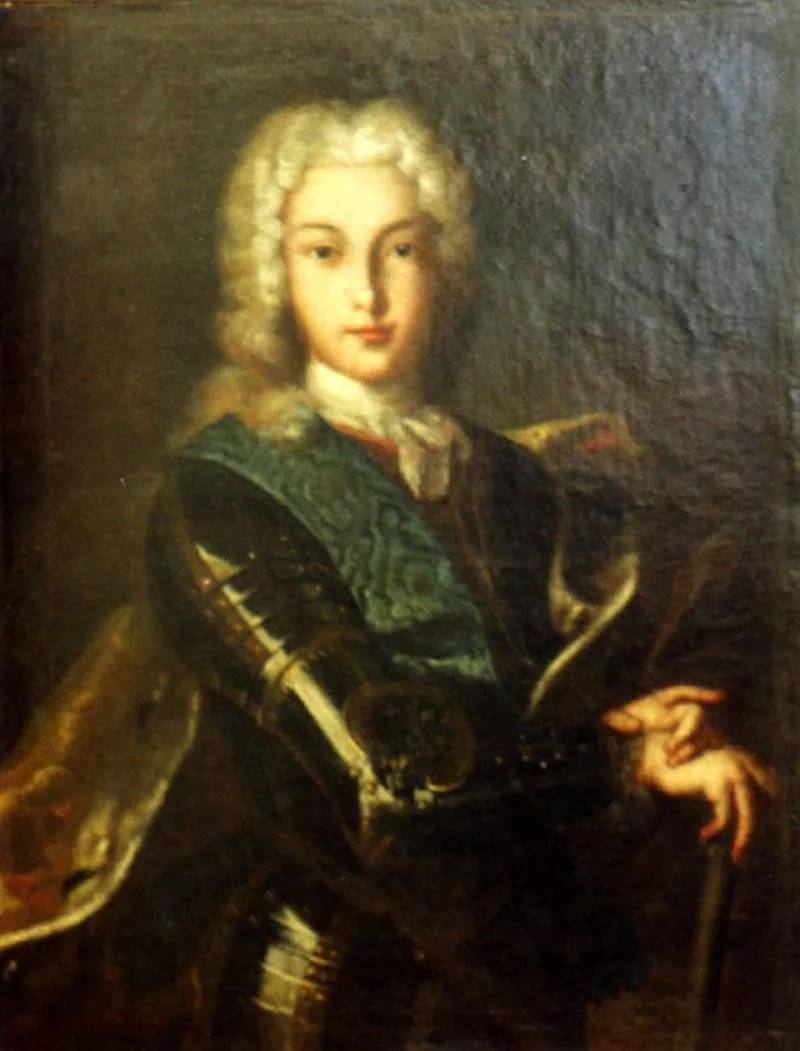
Article “Russia on the way to the era of palace coups. The first autocratic empress " was told about the famous decree of Peter I of February 5, 1722, according to which the ruling monarchs of the Russian Empire themselves could appoint their own successors. We also talked a little about Catherine I, the circumstances of whose accession give reason to consider him the first palace coup in the Russian Empire. This article will tell about the teenage emperor Peter II, who turned out to be the last descendant of the Romanov family in the male line. The fact is that, according to European tradition, children received a surname and title from their father, and the descendants of Peter III, the grandson of Peter I from his daughter Anna, although they called themselves Romanovs, formally belonged to the Holstein-Gottorp family.
Childhood years of the future emperor
There are many legends about the early childhood of Peter II. One of them claims that the nannies of the nursing grandson of Peter the Great gave him wine so that the child would not bother them too much. It's even interesting who and from whom would have learned about such an ugly attitude of educators to a member of the royal family - at that time a sacred person, in fact, a demigod. And it is difficult for a modern person to imagine what the very inventive royal executioners would have done with these nannies. One can only assume that these nannies would die very painfully and for a very long time.
Here and there you can read such a fairy tale: as if Peter I once discovered that his grandson almost does not know Russian, but he swears perfectly in Tatar. This bike also does not stand up to criticism. The tsarevich, of course, spoke Russian no worse than others. Moreover, Vice-Chancellor Andrei Ivanovich Osterman, appointed mentor and educator of Pyotr Alekseevich, testifies that at the time of their acquaintance, the 11-year-old boy knew Latin and spoke fluent French and German. And in the future, according to the assurances of the same Osterman, his pupil demonstrated good learning ability.
Contemporaries traditionally describe Peter II as a tall and physically developed boy beyond his years, and then as a young man, especially noting his good health and "angelic beauty": just a prince from a fairy tale.
To top it off, the future emperor was an excellent shooter with real guns and cannons.
It would seem that such an heir could only dream of. And therefore, immediately after the death of the beloved son of Peter I (Peter Petrovich), born to Catherine, some courtiers unsuccessfully tried to draw the tsar's attention to his grandson, who was the emperor's full namesake.
Little Pyotr Alekseevich was three and a half years old at that time. His mother died immediately after giving birth (on the tenth day), his father was tortured when he was two and a half years old. At least just in case, the boy should have appointed intelligent teachers who could educate him in the direction Peter I needed, put the necessary ideas and knowledge into his head. But the emperor did not even want to think about his grandson and did not pay any attention to him, perhaps because the boy reminded him of his unloved son Alexei tortured by his order.
It is generally accepted that the educators assigned to little Peter, the clerk Mavrin and the Hungarian (according to other sources, a Rusyn from Hungary) Zeykind, did not bother themselves or the student with lessons. However, we do remember that 11-year-old Peter knew three foreign languages, so, probably, things with his training were not so bad.
Later, on the initiative of Alexander Menshikov, a more than worthy teacher and mentor was appointed Peter Alekseevich's mentor - the already mentioned Heinrich Johann Friedrich Ostermann, an outstanding statesman of Russia of those years, who in Russia was called Andrei Ivanovich.
He managed to gain some influence on the student and achieve some success. But time was lost, because the boy had already come under the influence of the Dolgoruky clan, especially the young prince Ivan Alekseevich. And the rather ambiguous relationship with the young and cheerful Elizabeth, the prince's aunt, did not contribute to the study of the young emperor. But let's not get ahead of ourselves.
In the first years of his life, the only close person for the orphan boy was his older sister Natalya, whom Peter loved very much. The Duke de Liria, who was then the Spanish ambassador to Russia, recalled that this princess spoke German and French perfectly, and argued that, although she was not pretty, "virtue replaced beauty in her." The death of Natalia on November 22, 1728 was a very big blow for Peter II. It was about his sister that he remembered at the last minute of his life.
Let's go back to 1718 and see that even before the beginning of the torture and death of this boy's father, Peter I signed a decree depriving his grandson of the rights of the heir to the throne (February 14, 1718). The investigation into Alexei's case was still ongoing, the verdict was not passed, but Peter had made a decision long ago and was now clearing the way for his beloved son from Catherine. And after the death of Alexei, Peter and his sister Natalya were completely removed from the yard.
However, as we remember, Pyotr Petrovich was terminally ill and died in April 1719. And before Peter I, the question of a successor to the throne arose again. In 1721, little Peter Alekseevich and his sister Natalia were returned to the Winter House of Peter I (sometimes it is called the Winter Palace, which confuses readers who immediately imagine another palace built by B. Rastrelli in the middle of the XNUMXth century).
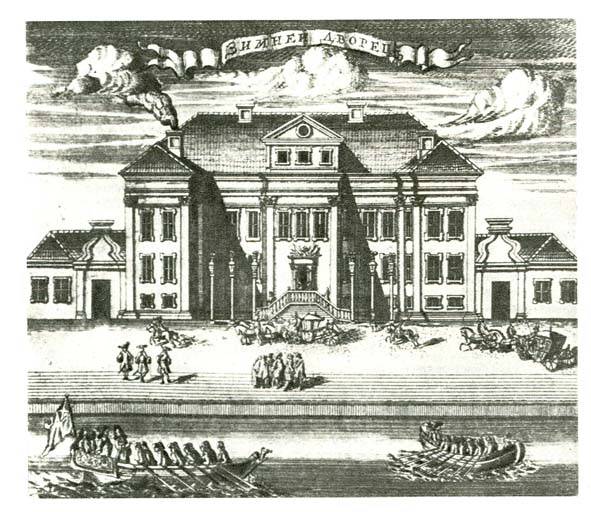
However, the status of the emperor's grandson was not clear - he was still not considered the heir to the throne.
On February 5, 1722, Peter I issued a decree on succession to the throne, according to which he could now appoint an heir to the throne himself. But the emperor delayed the adoption of this extremely important decision until the last minute and died before he could express his will. As a result, the formally autocratic power over Russia was in the hands of Catherine I, but the Supreme Privy Council ruled for her, headed by Alexander Menshikov.
Catherine's reign turned out to be short-lived: ascending the throne on January 28, 1725, she died on May 6, 1727, while she was only 43 years old. And only now it was the turn of the grandson of the first emperor, the son of Tsarevich Alexei, who ascended the throne under the name of Peter II.
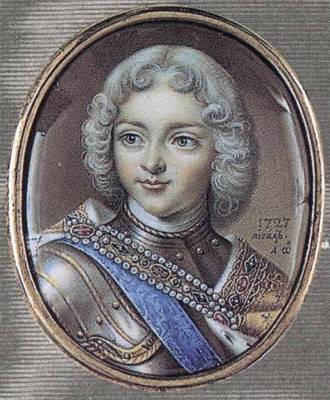
Emperor Peter II Alekseevich
After the accession to the throne of the new emperor, little has changed. The Saxon ambassador Lefort then compared Russia of the times of Catherine I and Peter II with a ship that rushes through the sea with a drunken crew and a captain. After the death of Peter I, Russian policy gained meaningfulness only under the not too beloved by our historians Anna Ioannovna, in order to be deprived of her again under Elizaveta Petrovna, who dragged Russia into the unnecessary Seven Years' War.
Under Peter II, the state was still ruled by the Supreme Privy Council, in which, as before, Alexander Menshikov played the main role. But the Serene One was already not satisfied with the previous power. To bind the new emperor to himself and his family, Menshikov achieved his betrothal to his daughter Maria, who at that time was 15 years old.
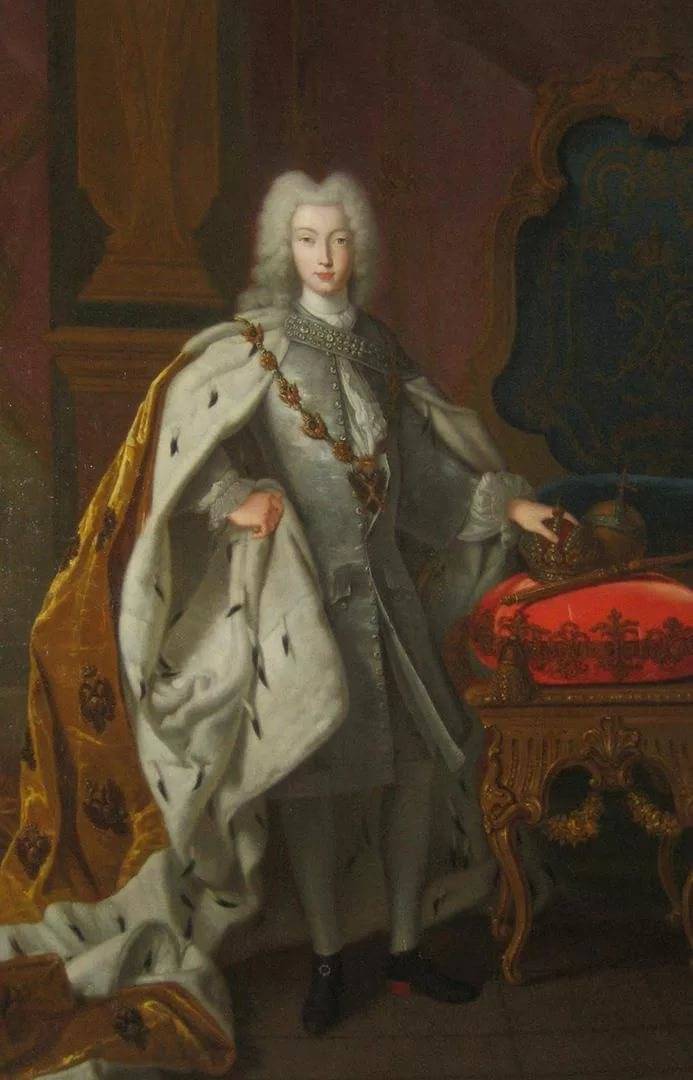
The Tsar's bride was awarded the title "Her Imperial Highness" and was assigned an annual allowance of 34 thousand rubles. For himself, A. Menshikov chose the rank of generalissimo and the post of commander-in-chief of the armed forces of the Russian Empire. Menshikov now thought that the future of his family was already fully secured, and he overlooked the rapprochement of the young emperor with the representative of the Dolgoruky family - the young prince Ivan Alekseevich, the son of one of the "supreme leaders". The clever prince quickly gained confidence in an inexperienced and unspoiled teenager, giving him the opportunity to enjoy all the delights and vices of a carefree high society life - from a hound hunt (which lasted for several days, regardless of the weather) and drunken feasts to card games and sexual experiments with available girls. Peter's mentor A.I. Osterman found it difficult to resist this influence, and, according to the testimony of the Saxon ambassador Lefort, the young emperor was then
The Spanish envoy, the Duke de Liria, wrote to Madrid:
But the Austrian ambassador Count Vratislav writes differently:
So intolerant, determined and hot-tempered was the young emperor? Or was he smarter than he seems, and played a subtle court game, alternately using both Dolgoruky and Osterman for his own purposes? We will no longer know this.
Peter also became close to his young aunt, the daughter of Catherine I, Elizabeth, contriving seriously to fall in love with her. "Merry Elizabeth" without any embarrassment flirted and flirted with her nephew, who already had a fairly rich sexual experience, and one can only guess how far their relationship went then.
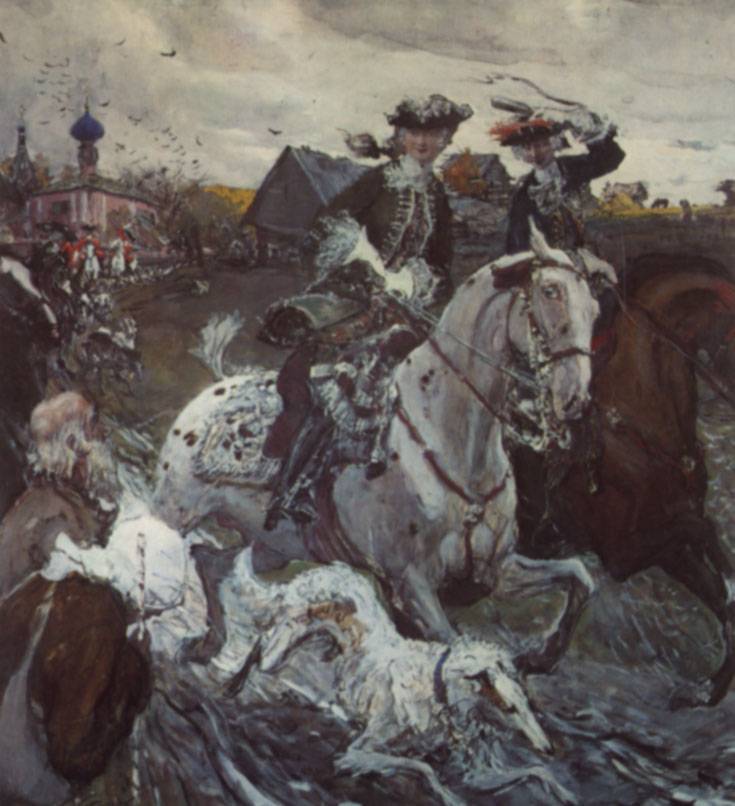
The first crack in the relationship between Peter II and Menshikov was due to the elementary greed of a super-rich temporary worker. At one of the receptions, the merchant delegation presented the emperor with several thousand gold pieces, which he ordered to give to his beloved sister Natalya, but Menshikov, who met on the way, turned the envoys back, saying: "The Emperor is too young and does not know how to use money."
The young emperor made a scandal, and Menshikov hastened to return this money, but, as they say, the residue remained. In addition, Peter II was burdened by the bride imposed on him, the daughter of Menshikov, who could not please him: in his letters the emperor called her "marble statue" and "porcelain doll".
The decisive moment was Menshikov's illness, which the Dolgoruky deftly took advantage of. The emperor was shown the protocols of his father's interrogations, signed by Menshikov, Tolstoy and Yaguzhinsky. While reading them, Peter II experienced a real shock, and the fate of Alexander Danilych was decided. When Menshikov left his palace to take part in the consecration of the church in Oranienbaum, Peter II, accompanied by the guards, arrived at Peterhof.
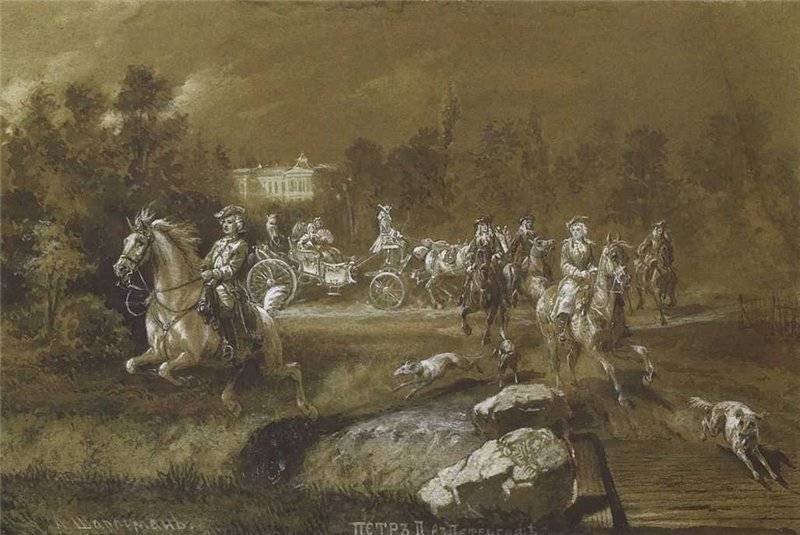
Here he signed a decree in which the Most Serene Highness was forbidden to return to St. Petersburg and ordered to remain in Oranienbaum. And then followed by arrest, deprivation of all titles and awards and an order to go to the Ryazan estate. Menshikov still hoped to preserve his property and former way of life: his family went into exile in four carriages, which were accompanied by 150 carriages, 11 vans and 147 servants. However, halfway through the road, another order came: all Menshikov's estates, 99 thousand "souls" of serfs, 13 million rubles and a huge amount of jewelry were confiscated, and he and his family were sent to the West Siberian city of Berezov, where the former tsar's bride Maria died first. and then the "semi-sovereign ruler" himself.
And the Dolgoruky decided to forge the iron while it was hot, and followed Menshikov's path, appointing a girl of a kind - Ekaterina Alekseevna as the bride to the emperor.
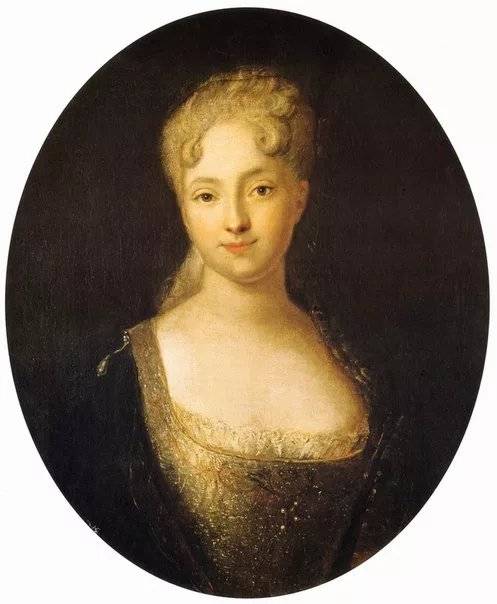
But the young emperor fell ill with smallpox and died exactly on the day of the appointed wedding - January 19 (30), 1730. It is said that his last words were: “Lay the horses. I will go to Natalia's sister. "
Let us recall that the sister of Peter II died on November 22, 1728.
Now it is difficult to say for sure how good (or bad) Peter II would have become if he had not died of smallpox, but lived to a mature age. Perhaps Russia would have received only a more brutal, “masculine” version of the “merry Elizabeth”. But it is quite possible that the schoolchildren would now study the campaigns to the Crimea and Azov not by Minikh and Lassi, but by the warlike Russian Emperor Peter II, under whom these generals would have been in the role of Sheremetyev and Repnin or Bruce. The example of Charles XII proves that even frivolous and windy fools sometimes grow into excellent warriors. There is no doubt that these campaigns would have taken place: the logic of historical development is inexorable. Even during the life of our hero, P.A.Rumyantsev and A.V.Suvorov were born in Russia: they, too, would have fulfilled the genetic programs laid down in them - under any circumstances. VK Trediakovsky and AP Sumarokov, MV Lomonosov and FG Volkov were already born: the university would be established, the theater would be founded, solemn odes celebrating new victories would be written. But, perhaps, Russia could have avoided inconsistency and "vacillation" in its historical movement and development, when each new emperor or empress considered it their duty to break and arrange in a new way everything that their predecessors had built over the years. Perhaps our country would have been spared the systematic "raids" on the state treasury of temporary workers who had seized power - "bands of godless impudent men ... endowing themselves with different insignia and honorary positions" (as A. V. Stepanov wrote about the first government of Catherine II). And from the exsanguination of the state on more and more nonentities - the favorites of the "crazy empresses", against the background of which the abuses of the same Dolgoruky, who managed to "get their hands on" the young and inexperienced Emperor Peter II, pale and look unconvincing.
After the death of Peter II, the Russian imperial throne for a short time passed to the representatives of another branch of the Romanovs - the descendants of Tsar Ivan V. It was his daughter Anna who became the last purebred Russian representative of the Romanov dynasty on the Russian throne. The failed Empress Catherine Dolgorukaya was exiled to Berezov (where, as we remember, the first bride of Peter II, Maria Menshikova, died). According to some reports, there, a few months later, she gave birth to a dead girl. In 1740 she was transferred to the Rozhdestvensky monastery in Tomsk.
The Ivanovichs, as you know, did not keep the imperial power, having conceded it to the daughter of Peter I, Elizabeth, who ascended the throne after the next palace coup. Under her, Ekaterina Dolgorukaya returned to St. Petersburg and even managed to marry Lieutenant-General A.R. Bruce, but caught a cold and died in 1745.
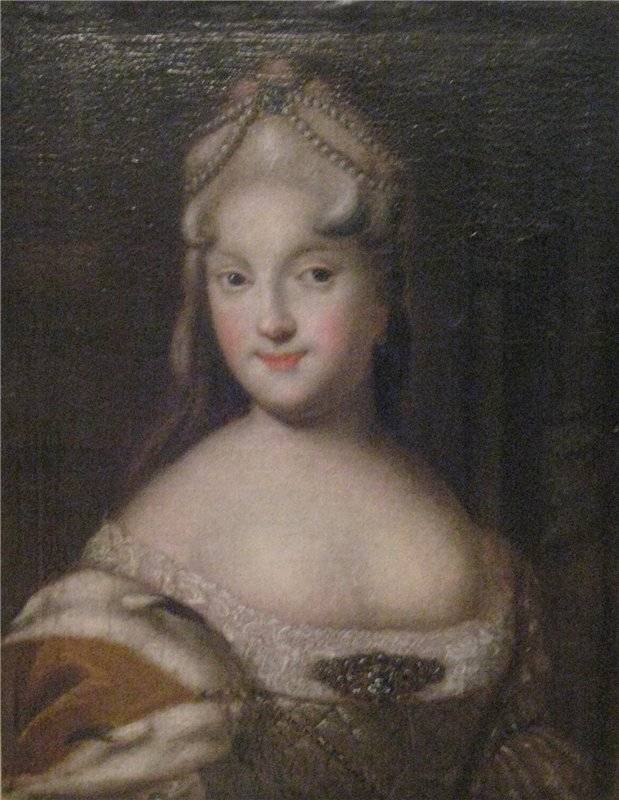
Elizaveta Petrovna all her life was afraid of a new palace coup and even tried never to sleep twice in a row in the same room. This empress managed to die in her bed, but the wife of her nephew, the German princess Sofia Federica Augusta, who later took the name of Catherine II, entered history as the organizer of the murders of the legitimate emperors of both lines of the Romanovs: Alekseevich (Peter III) and Ioannovich (Ivan VI).
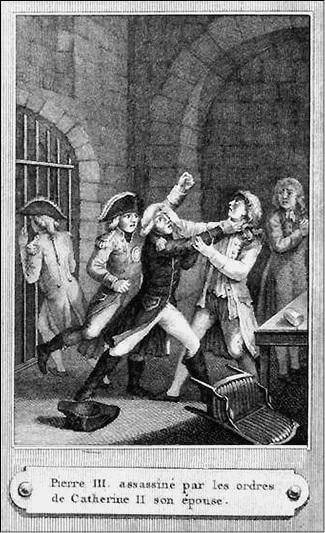
And her grandson Alexander was involved in the murder of his own father - Paul I.
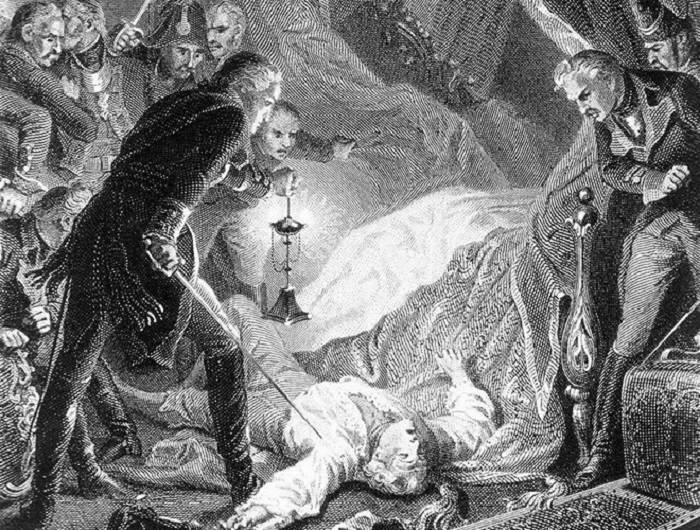
Only after the death of this emperor ended the ominous, cruel and brilliant era of palace coups. The last attempt of the guards to change the history of Russia at their own discretion ended in complete failure in December 1825 - mainly due to the complete degeneration of the leaders of these praetorians, who did not dare to raise the power, which literally lay under their feet for a whole day.
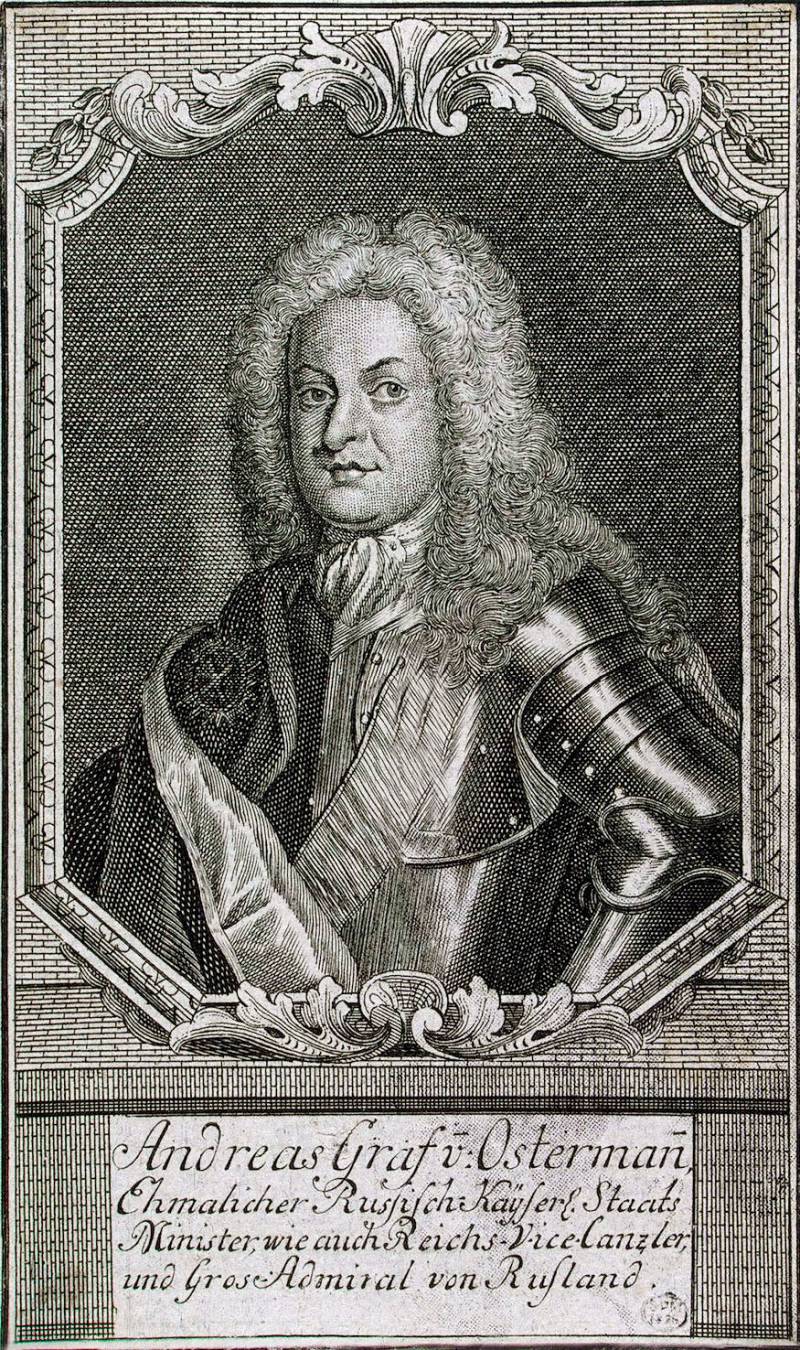
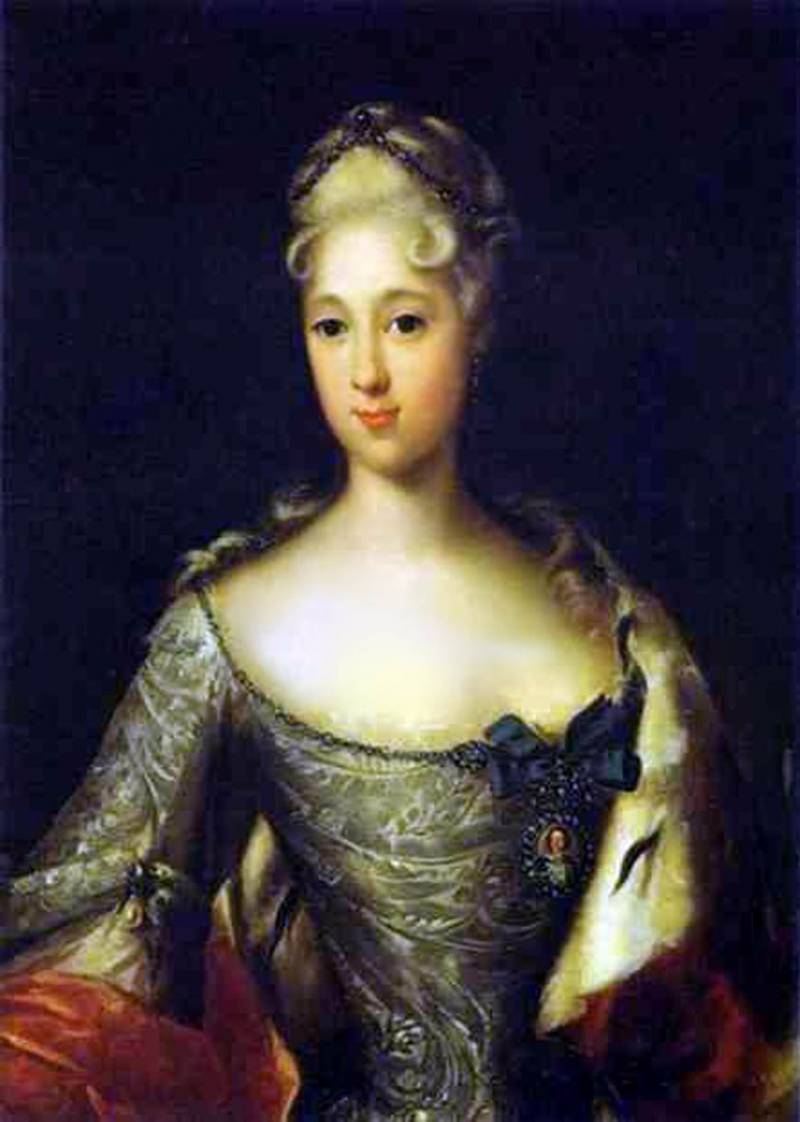
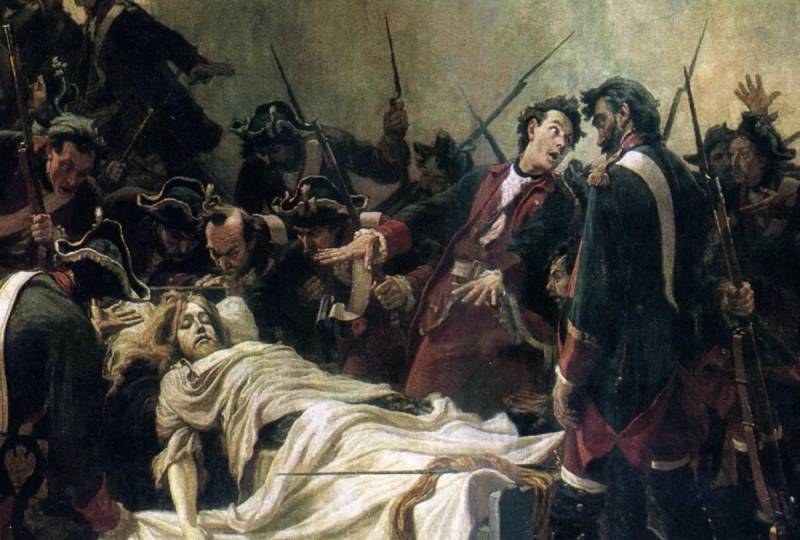
Information